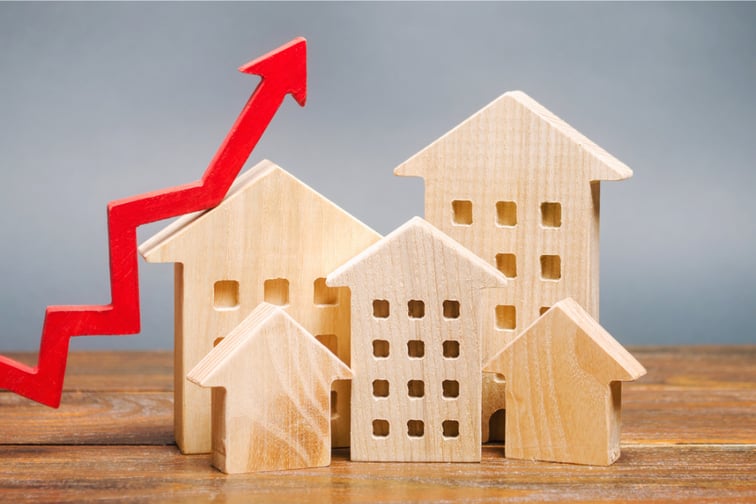

Property prices have increased at nearly seven times the pace of wages growth over the past year – this despite the property market starting to weaken and with wages picking up.
By later this year or the next, property prices could decline as wages increase, which would help first-home buyers save more for a deposit but would see them paying more in interest rates on their mortgage.
Australian Bureau of Statistics figures showed wages rose by 2.4% over the year to March, while Australian dwelling values rose nearly seven times as fast at 16.7% over the year to April, according to CoreLogic’s latest property data, The Sydney Morning Herald reported.
Over the past couple of years, a property price boom triggered by ultra-low interest rates has left many hopeful first-home buyers struggling to save a deposit and earning stagnant wages.
The tide has begun to shift recently. National property values rose by only 1.9% over the past three months, and home values in Sydney and Melbourne saw a slight drop. Meanwhile, workers’ pay packets rose 0.7% in the three months to March, even as pay rises are being eaten up by increasing cost of living.
Gareth Aird, Commonwealth Bank head of Australian economics, said the low interest rate-driven property boom had been going on for an extended period of time.
“Households have been borrowing more and more for a given level of income simply because they can,” Aird told SMH. “Wages growth has picked up, but it’s certainly not — as measured by the Wage Price Index — particularly strong, although it is directionally moving up and that’s a good thing, and that’s what you’d expect given how tight the labour market is.”
Fresh ASB data revealed that Australia’s unemployment rate was at a 48-year low of 3.9% in April.
Aird expects that it will take some time for wages to rise further as many employees are covered by multi-year agreements. He added that the participation rate is also higher than in the US, where some workers who got sick with COVID dropped out of the workforce, so the smaller pool of workers helped employees push for higher pay.
Aird is also expecting property values to fall more broadly and wages growth to improve later this year and the next.
“It sounds counterintuitive to think that as people’s wages go up, the amount of money they’re willing to pay for a home is less,” Aird told the Herald. “The interest rate is going up — that’s going to weigh on how much someone can borrow — and their mortgage repayments are going to be higher for a given level of debt.”
This, he said, meant a would-be buyer would need to save less for a home deposit and at the same time receive a little bank interest on their savings and enjoy a pay rise. Whether or not housing affordability improves, however, will depend on how far housing prices fall compared to their increasing monthly repayments.
Gareth Spence, NAB senior economist, said low interest rates meant households could borrow more and service a larger debt, pushing up property prices, but this could soon flip.
“We have [forecast] housing prices slowing this year as interest rates and expectations strengthen, and then declining by 10% next year,” Spence told SMH. “But after that, we think they normalise to around wage growth… we have wages growth getting to about 3.5% eventually.
Spence said that while price falls improve housing affordability, this was offset by higher interest rates on mortgage repayments, which meant it was not that much easier to buy a home.
“What you’re losing on the price you’re gaining on servicing the mortgage anyway, so in net terms are you that much different? Not too much,” Spence told the Herald. “The affordability question is a very difficult one but over time supply and demand is what matters, so if you want lower house prices or slower growth over time you have to build more houses.”
Matthew Hassan, Westpac senior economist, said low interest rates over time had trimmed mortgage repayments and pushed up property prices – a trend that was starting to reverse as interest rates increase and prices were likely to fall.
Wage increases tended to be more gradual over time, Hassan said, and the economy was heading into a period of a very tight labour market while property prices fell.
“That will see some eventual improvement in affordability, although it will take time to come through and it will be in a higher interest rate environment, so it’s still not easy to get into the market,” he told the Herald. “We will be seeing a shift towards a mix that will see some improvement in affordability but it’s coming from a very stretched starting point.”
